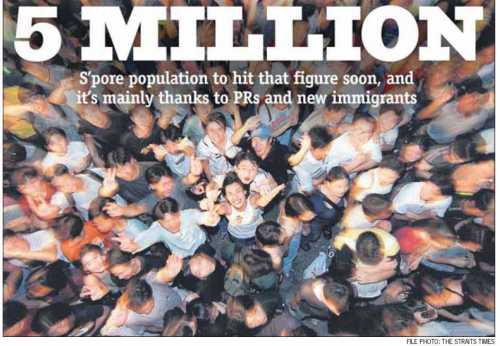Singapore has long been a popular career destination for foreign professionals, thanks to its robust economy, strategic location, and high quality of life. The government’s policies have consistently aimed to balance local workforce needs with contributions from foreign talent. However, with evolving economic demands, changes in global trends, and a focus on strengthening local employment, the landscape for foreign employment in Singapore has undergone significant shifts.
The Singapore government is pushing towards a digital transformation at all levels with the Smart Nation Plan. This also means that Singapore’s workforce needs to be highly skilled in innovative technology such as cybersecurity, AI, and advanced manufacturing. This increased demand for high-skilled workers is evident not only in Singapore but also worldwide. This article explores Singapore’s shifting foreign employment trends and how it balances with the local workforce.
1. Balancing Foreign Talent and Local Workforce
To manage the shift in hiring foreign talent, the Singaporean government has implemented progressive policies in recent years. These include gradual increase of salary thresholds for S Pass and Employment Pass (EP) holders and the implementation of the COMPASS framework for EP applications.
These measures are implemented to ensure that foreign hires meet specific professional standards and fair competition for locals in professional, managerial, executive, and technical (PMET) roles. They also reflect Singapore’s commitment to growing a resilient and skilled local workforce while making space for foreign talent who contribute unique skills.
Impact of the Complementarity Assessment Framework (COMPASS)
Singapore introduced the Complementarity Assessment Framework (COMPASS) in 2023 for EP applications, which evaluates both the applicant and the hiring company across a range of factors, including:
- Individual Qualifications and Skills: Points are awarded based on qualifications, experience, and skills.
- Sectoral and Firm-based Criteria: Companies that contribute to Singapore’s national interests in specific industries can benefit from COMPASS points.
- Diversity and Support for Local Workforce: Companies with a diverse and inclusive workforce that prioritise local development gain additional points, thus aligning with the government’s goal of developing a cohesive labour market.
COMPASS ensures that foreign workers are hired to complement, rather than compete directly with, the local workforce.
2. Key Sectors for Foreign Employment
In the first half of 2024, Singapore sees an increase of 11,200 non-resident employment – mostly in construction and manufacturing sectors. Both S Pass and Employment Pass (EP) holders saw a negative growth in the second quarter of the year due to policy changes such as increases in minimum qualifying salaries for both passes, higher levies and reduced quotas for S Pass. This is in line with the government’s goal to attract high-skilled workers from around the world to complement the local workforce.
The number of Work Permit holders have seen the biggest increase in the past five years, mainly in the Construction, Marine Shipyard and Process (CMP) sectors as companies catch up on projects that were delayed by the COVID-19 pandemic.
The top three sectors for employment in Singapore are Construction (13.2%), Manufacturing (12.1%), and Services (74.1%), according to the Ministry of Manpower’s (MOM) 2023 statistics.
Manufacturing
The manufacturing sector has been the largest contributor to Singapore’s GDP since its independence almost 60 years ago. Today, this sector is moving into more digitalised processes that is characterised by its high level of technological sophistication and encompasses key industries such as electronics, biomedical sciences, precision engineering, aerospace, and chemicals. The strategic emphasis on innovation, automation, and Industry 4.0 technologies has positioned Singapore as a global hub for high-tech manufacturing, creating a strong demand for specialised skills.
Major electronics multinational corporations (MNCs) have established manufacturing and R&D facilities in Singapore, driving demand for foreign talent with expertise in microelectronics, circuit design, and nanotechnology. In biomedical sciences, foreign professionals that are skilled in areas like drug development, clinical trials, and advanced manufacturing techniques for medical devices are needed. Singapore’s focus on becoming a global biopharmaceutical hub further amplifies the need for international expertise. Precision engineering supports industries such as electronics, aerospace, and robotics and foreign talent in specialised roles in design, prototyping, and advanced materials science are in demand.
In 2013, the semiconductor manufacturing in Singapore contributed S$133 billion (US$101 billion) to the total electronics manufacturing output, contributing about 7% in GDP. Semiconductor engineers made it to the MOM’s talent-starved jobs for 2025.
Information Technology (IT) and Fintech
Singapore’s Information Technology (IT) and Financial Technology (Fintech) sectors are at the forefront of the nation’s ambitious vision to become a global digital and financial hub. With digitalisation becoming the backbone of every industry, Singapore’s robust digital ecosystem and strategic focus on innovation have fueled a growing demand for specialised skills. As a result, the country has emerged as a hotspot for foreign professionals in IT and Fintech, particularly in areas such as data analytics, cybersecurity, artificial intelligence (AI), and blockchain.
While there is a decrease in foreign hiring in this sector, it can be attributed to the recent mass retrenchments by major tech companies due to restructuring. Singapore’s tech situation echoes what is happening globally as tech companies focus on profitability and productivity. However, AI has taken centre stage in the tech sector as AI-related products are estimated to hit almost USD 1 trillion in sales. AI, cloud, and cybersecurity professionals make it to MOM’s 2025 list of talent-starved jobs as well. This further emphasises Singapore’s goal in attracting high-skilled talent that can innovate and transform the sector.
Healthcare
Singapore’s healthcare sector is one of the fastest-growing industries in the country, driven by an ageing population and the need for advanced medical services. The nation’s commitment to providing world-class healthcare has placed immense pressure on its system, creating significant demand for qualified healthcare workers. Foreign talent, including doctors, nurses, allied health professionals, and specialists in medical research, plays a pivotal role in meeting these needs and ensuring the delivery of quality care. Singapore is accepting more registered nurses from Indonesia and India to fill up vacancies in its workforce and meet the increasing demand for healthcare professionals.
3. Specific Work Passes for Top Tier Foreign Talents
Singapore’s employment policies increasingly favour highly-skilled foreign professionals who bring unique expertise to the local job market. This shift is reflected in:
- Focus on EPs for High-Skilled Roles: The tightened EP criteria aim to attract foreign workers with specialised skills, especially those contributing to the government’s high-growth areas, like advanced manufacturing and digital transformation.
- Skill-based Employment Passes: Singapore has introduced specific work passes, such as the Tech.Pass and ONE Pass, which are designed for top professionals in technology and other strategic sectors, offering greater flexibility and mobility within the region.
This emphasis on skill sets reflects Singapore’s ambition to become a global innovation hub, leveraging foreign talent to meet high-tech and niche sector demands.
Future Outlook: Evolving Opportunities and Continuous Adaptation for Foreign Employment
The Singapore government is likely to continue balancing foreign workforce needs with local employment priorities. The demand for specific expertise will likely drive future foreign employment trends.
In conclusion, Singapore’s foreign employment trends reflect a careful balancing act. While there is a push to develop local talent and reduce dependency on foreign labour, foreign professionals will remain essential, especially in specialised and high-growth industries. For foreign job seekers, understanding these trends, adapting to evolving regulatory frameworks, and aligning with Singapore’s sectoral focus are key to finding long-term success.







